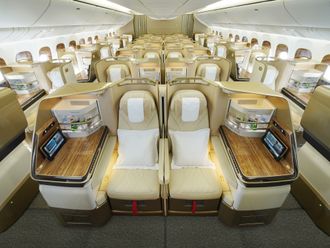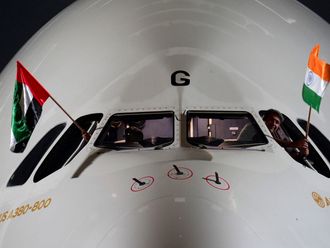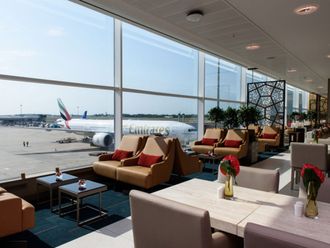Increasingly, Gulf Cooperation Council (GCC) countries are being acknowledged as becoming competitive at an international level. The growing recognition is a reward for their undertaking positive measures including the allocation of additional resources for education, health and infrastructure.
In fact, all GCC countries except the UAE advanced their ranking in the 2010-11 Global Competitiveness Index (GCI), which has been published every year since 2001 by the World Economic Forum.
For its part, Qatar succeeded in progressing five notches up the index to clinch number 17 out of 139 economies around the world. This is the best result in the Middle East and North Africa (Mena) region and the wider Muslim world.
Competitive variables
The extraordinary ranking relates to measures Qatar has taken to strengthen key competitive variables including its infrastructure. There is plenty of evidence to support this, including Qatar's allocation of 37 per cent — or $12 billion (Dh44.13 billion) — of its total spending in the 2010-11 fiscal year for infrastructure projects. The schemes are to further develop the country's airport and seaport, roads, sewage systems, and land reclamation, and to expand the country's capacity to generate electricity and water.
Saudi Arabia succeeded in replacing the UAE as the second most competitive economy among Arab and Muslim nations. Saudi Arabia advanced by seven notches to number 21 in the Global Competitiveness Index, on the back of allocating almost half its $144 billion in budgetary spending for the fiscal year 2010 for infrastructure projects. Other steps included the allocation of 25 per cent and 11 per cent of expenditure to education and health and social development, respectively. This kind of spending tends to have positive spillover effects on the economy at large.
The UAE's retreat by two notches to number 23 on this year's Global Competitiveness Index reflected the slow process of updating laws to address business practices such as bankruptcy. Yet, the same report said the UAE was renowned for excellence in business sophistication and technological readiness. In fact, the Dubai Metro is a standout in the GCC region.
Notably, Oman managed to advance by the same degree as Saudi Arabia, to be ranked number 34. In doing so, Oman moved up from the bottom to the fourth highest spot among the GCC countries. As a result, Bahrain replaced Oman as the least competitive GCC economy by virtue of being ranked number 37 on the index. For its part, Kuwait improved its ranking at the expense of Bahrain by progressing by four notches to number 35.
Rare times
Undoubtedly, Bahrain's position on the GCI represented a setback for the Economic Development Board, which has been mandated to strengthen the country's competitive position on the global level. Much to the Economic Development Board's surprise, this was one of the rare times Bahrain has turned out to be the lowest ranking GCC country.
The Global Competitiveness Index ranks economies on their achievements in three broad categories: basic requirements, efficiency enhancers and innovation and sophistication factors. In turn, the basic requirements category is divided into institutions, infrastructure, macroeconomic stability, health and primary education.
Efficiency enhancers
Still, the efficiency enhancers category comprises higher education and training, goods and market efficiency, labour market efficiency, financial market sophistication, technological readiness and market size. Yet, the innovation and sophistication factors category is made up of business sophistication and innovation.
The three categories of basic requirements, efficiency enhancers and innovation and sophistication are brought together in the formation of the Global Competitiveness Index, which is made up of a maximum seven points. The index is developed by using publicly available data and the World Economic Forum's own opinion surveys.
Qatar, Saudi Arabia and the UAE are regarded as more competitive than many notable economies including those of Malaysia and China. However, the 2010-11 GCI rankings suggested that all GCC countries could improve their positions by devoting particular attention to education and training.
The writer is a Member of Parliament in Bahrain.












